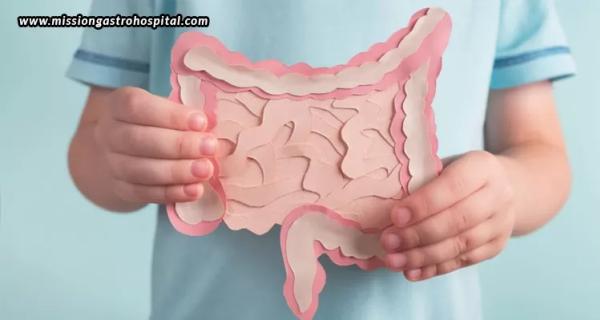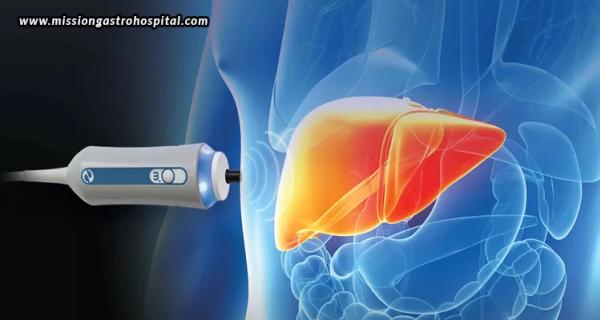Imagine yourself standing on the brink of an amazing view, watching the sun set in a rainbow of colours, and hearing the call of a new adventure. There is no greater delight than exploring new cultures, exploring faraway places, and indulging in exotic meals. However, the thought of travelling can also be unsettling for people who have digestive problems. Your wanderlust may be tempered by the worry of an unplanned flare-up or the difficulty of adhering to dietary restrictions when travelling. Fear not! With guidance from the tips mentioned in the blog below, you can travel with confidence and navigate the world without being limited by your digestive concerns.
Understanding your GI issues
Understanding your gastrointestinal issue is essential before you set out on your trip. Knowing your triggers and symptoms will help you plan well, regardless of the gastrointestinal condition you’re suffering from. You may consult your healthcare provider to discuss your issues and get tailored advice on managing your condition while travelling. Make sure to pack any prescription drugs, nutritional supplements, or additional resources that can help manage your symptoms. Make a list of safe meals and drinks to prevent any flare-ups, and learn about the local fare and dining possibilities. Being prepared and proactive can make a significant difference in ensuring a smooth and enjoyable journey. With the right planning and support, you can manage your gastrointestinal issues effectively and focus on making the most of your travel experience.
Pre-travel preparation
Traveling with gastrointestinal issues can be challenging, but with careful preparation, you can manage your condition effectively and enjoy your trip. Here are a few crucial pointers to guarantee trouble-free travel.
- Plan your meals: Find safe food alternatives that fit your dietary requirements by researching the local cuisine in your destination. Think about bringing along non-perishable snacks like dried fruit, almonds, or gluten-free granola bars. These can be quite helpful in situations where there aren’t many alternatives for healthy eating. Being aware of which foods to eat and which to avoid can help you steer clear of potential triggers that could lead to discomfort or flare-ups. If you follow a particular diet, such as being gluten- or lactose-free, be careful to research local grocery shops and eateries in advance.
- Medications: Make sure you have a sufficient amount of your prescription drugs and any over-the-counter medicines you may require. Prescription copies and a letter from your physician outlining your illness and the need for your meds should be kept alongside your pills in their original packaging. This is especially crucial if you’re travelling abroad because many countries have different laws governing the use of medications.
- Stay hydrated: Keeping your stomach healthy requires drinking plenty of water, especially when travelling. Drink lots of water on your trip and have a reusable water bottle with you. If you’re unsure about the quality of the local water sources, choose bottled or filtered water instead. Keep in mind that dehydration can worsen gastrointestinal problems, so being properly hydrated is crucial. Keep water close at hand at all times to be comfortable and hydrated.
With these preparations, you may take care of your digestive problems and concentrate on having fun on your trip. A little planning beforehand will make a big difference in how worry-free and easy your trip can be.
During your journey
Managing your digestive problems when travelling is necessary to keep you comfortable and healthy. Here are some useful pointers to assist you in taking care of your health while you’re on the go.
- Choose your food wisely: Choose easy-to-digest meals and stay away from items that have been linked to triggers. Never be afraid to enquire about the preparation of a meal if you have any questions. A lot of eateries are friendly and will assist you in finding something that works. When travelling, eating the appropriate meals might help you feel your best and avoid flare-ups.
- Continue your regular eating routines: Make every effort to adhere to your usual dietary routine. GI discomfort may worsen if you miss meals or eat at strange hours. Bring snacks in case you have to travel or view attractions during meal times. Maintaining a regular eating schedule reduces discomfort and helps maintain your digestive rhythm.
- Stay active: Moderate exercise might assist with certain GI issues and improve digestion. Seize the chance to walk, whether it’s to explore your location on foot or simply to take a leisurely stroll around. Yoga or light stretching might also be helpful. Engaging in physical exercise lowers the likelihood of constipation and maintains the health of your digestive system.
- Stress reduction: Stressful travel might have an adverse effect on your digestive system. Use stress-reduction strategies like meditation, deep breathing, and relaxing music. Make sure you get adequate sleep and avoid doing too much. Stress management is essential to preserving gut health and overall well-being.
Always pay attention to your body’s signals and take the required actions to maintain the health of your digestive system.
Coping with flare-ups
Flare-ups can still happen even with meticulous planning and preparedness. And, when they happen, it’s critical to understand how to handle them skillfully to reduce discomfort and stop the condition from getting worse. Here’s how to deal with flare-ups and guarantee a quicker recuperation:
- Take a nap: If you’re feeling under the weather, allow yourself to take a nap. Make changes to your schedule to allow for more relaxation and stay away from physically demanding activities until you feel better. Take it easy; rest is essential for your body to repair and recuperate. Pay attention to your body’s needs and give rest precedence over sightseeing or other pursuits.
- Stick to your safe foods: Stay with meals you know are safe and easy for your stomach to consume during a flare-up. This might be the BRAT diet, which consists of bananas, rice, applesauce, and toast. Steer clear of new culinary experiments and heavy, spicy, or rich meals that can exacerbate your symptoms. You can expedite your recuperation and calm your digestive tract by sticking to a basic, bland diet.
- Take your prescription drugs as recommended: Make sure you always have your meds on hand and take them as prescribed. Make sure you take your medications as directed by your doctor, and keep any emergency supplies on hand at all times. And, do not wait to get medical attention if your symptoms are severe.
It can be upsetting to experience flare-ups, particularly while you’re travelling. Pay attention to your body and give it the care it needs, even if it means slowing down your travel pace.
Even though it can take more preparation and attention, you can still have a rewarding and pleasurable trip when you travel with GI problems. You can lessen the effect that GI problems will have on your trip by managing your health proactively and being ready for any challenges that arise. It’s also important to speak with a healthcare provider well in advance, who can provide you with specific advice on what to do and what not to do, as well as assist you identify possible triggers and learn how to avoid them. This guarantees that you’ll be ready to handle your symptoms while travelling with ease. Prioritizing your health by consulting with a healthcare provider is essential for a safe and enjoyable travel experience. So, don’t let gastrointestinal issues keep you from exploring the world. Get in touch with the best gastroenterologists in Ahmedabad at Mission Gastro Hospital, renowned for their expertise in gastrointestinal care, as they’ll offer tailored guidance depending on your particular health situation and prescribe drugs that could help you throughout the journey.




